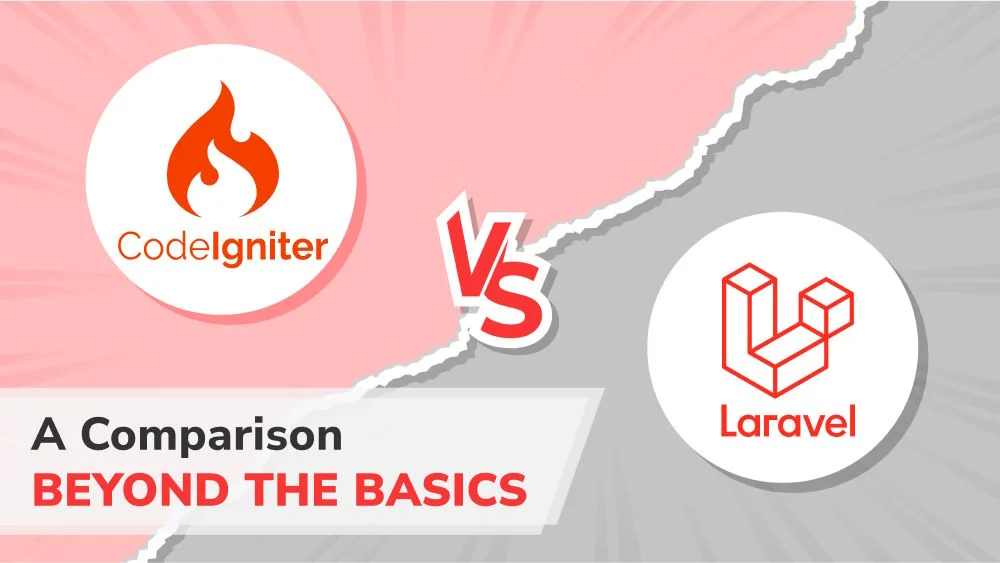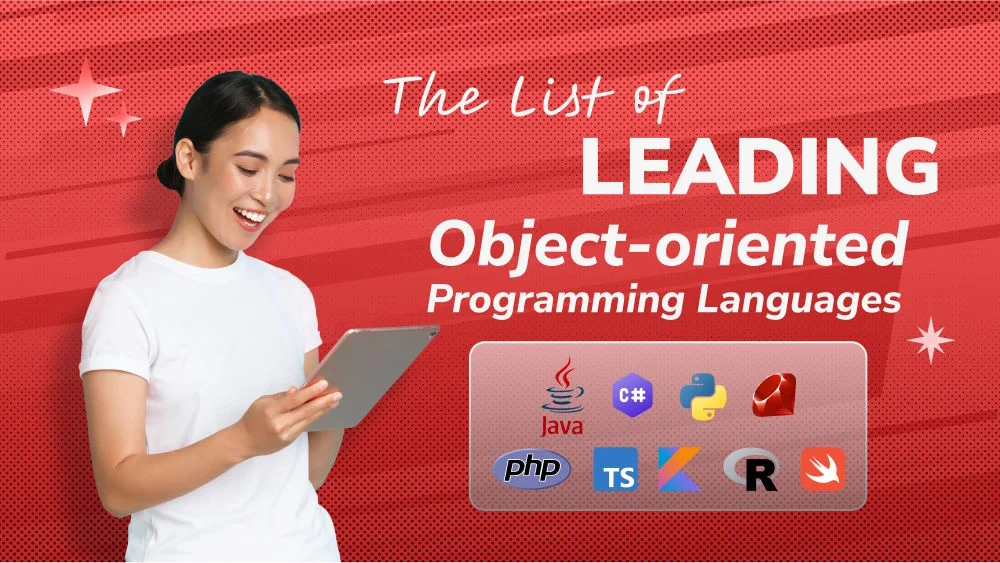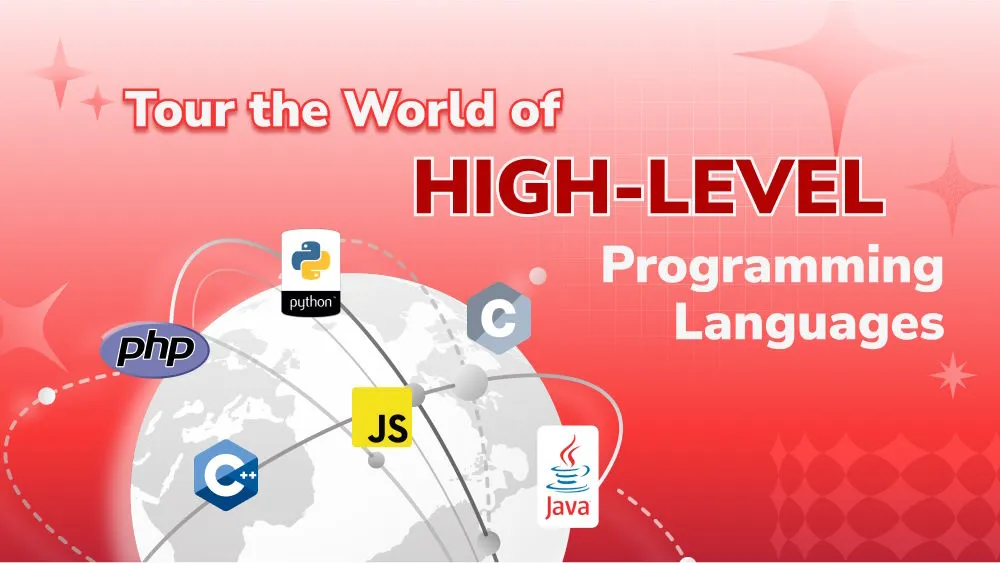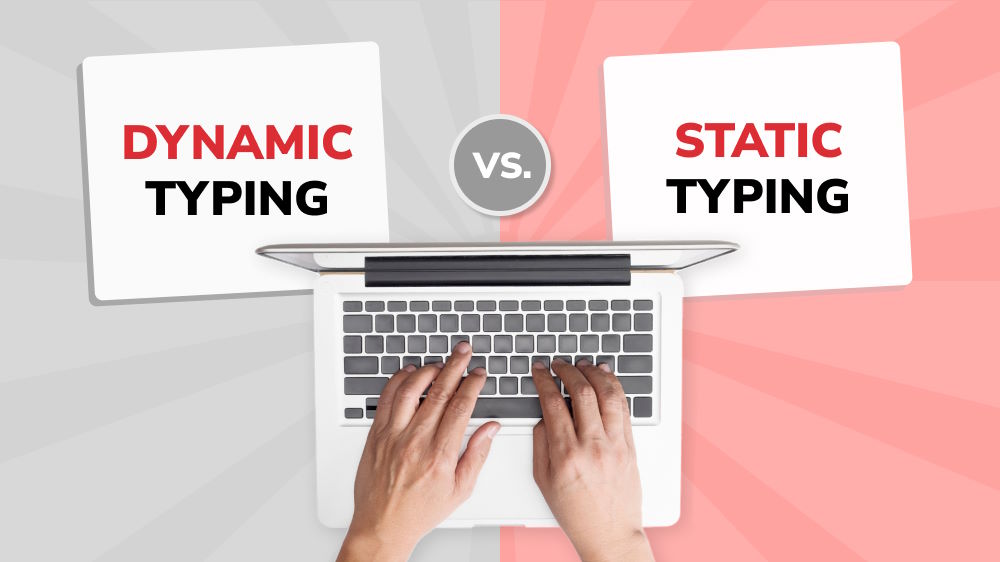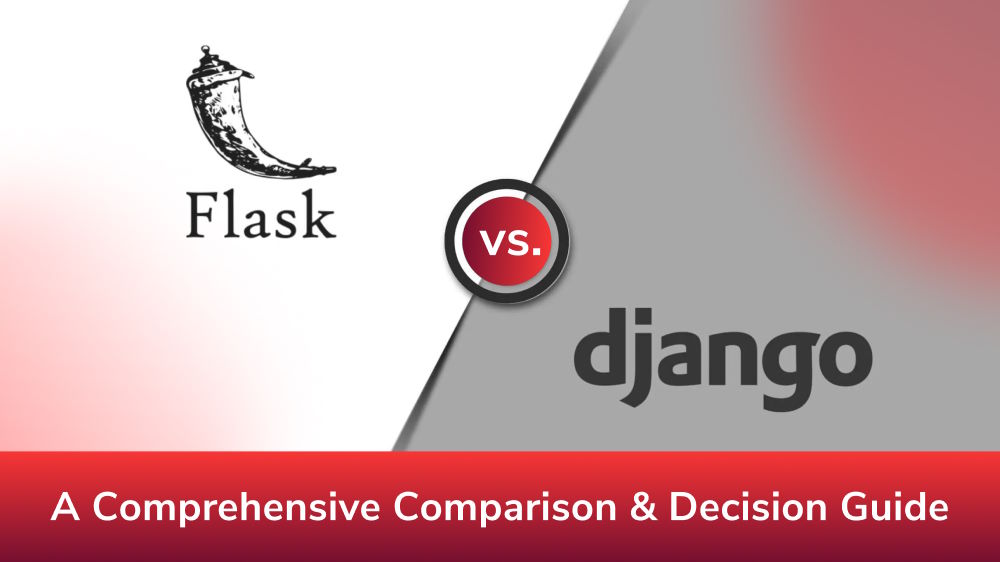Being a Superior Newbie: Learn Programming Logic for Beginners
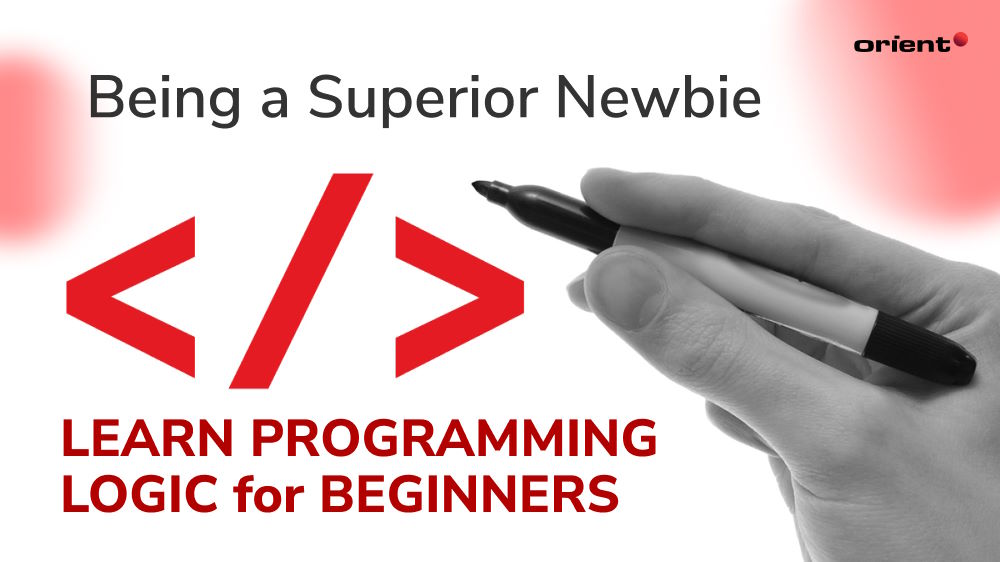
Content Map
More chaptersHave you ever wanted to build your own website, design an addictive game, or automate those repetitive tasks on your computer? Programming languages unlock these awesome abilities, but facing walls of cryptic symbols can feel overwhelming. Embarking on the journey of writing code can be as thrilling as it is daunting, especially for beginners. But fear not, aspiring programmers! Here’s the key to turning coding dreams into reality: programming logic for beginners. In fact, a solid grasp of programming logic is not just recommended; it’s essential—with industry experts citing it as the most crucial ability for machine learning and data science, trumping even experience and knowledge.
Think of programming logic as the invisible foundation of every great building. Without a solid base, even the most stylish skyscrapers can crumble. In coding, mastering logic is just as crucial. It’s the secret sauce that transforms your ideas into clear instructions computers can understand. The coolest part? This essential skill isn’t reserved for a genius software engineer – even absolute beginners can grasp it in no time. This guide will be your blueprint for building a strong foundation in programming logic, taking you from coding novice to coding confident, one logical step at a time!
Why Is Programming Logic Important?

Programming logic is the foundational framework that dictates how a computer performs particular tasks and solves problems. It’s akin to a recipe that guides the computer through a series of instructions, each step building upon the last, to achieve a desired outcome. This logical sequence is crucial because, unlike humans, computers require explicit directives to function. They can’t make assumptions or ‘read between the lines’; they operate solely within the bounds of the logic provided to them.
Imagine you’re giving someone directions to your house. You wouldn’t just say, “Come over”; you’d provide a series of steps to follow, like “Turn left at the gas station, then take the second right.” Programming logic works similarly, but instead of streets, it uses algorithms—sets of rules or calculations—to guide the computer.
Now, it’s important to distinguish between programming logic and programming languages. If programming logic is the blueprint, the detailed plan of what you want to build, then a programming language is the toolbox that helps you bring that blueprint to life. Languages like Python, Java, or C++ have their own syntax and rules, but they all serve the same purpose: to translate abstract logic into concrete instructions that a computer can execute.
In essence, programming logic is universal. It’s the thought process that underpins every program, regardless of the language used to write it. It’s the ‘what’ and ‘why’ behind the code, while the programming language is the ‘how.’ By understanding programming logic, you gain the ability to map out solutions to problems—a skill that transcends any specific programming language and is at the heart of all coding endeavors.
Fundamental Concepts of Programming Logic
Programming logic relies on a few foundational building blocks that act as the cornerstones of your functional software. Let’s explore these essential concepts:
Variables and Data Types: Imagine a box that can hold different things – a number, some text, or maybe even a list. In programming, variables are like these boxes, storing data your program can use. Data types define what kind of information a variable can hold, like numbers (integers, decimals), text (strings), or true/false values (Booleans). Understanding variables and data types is crucial for organizing and manipulating data within your code.
Conditional Statements: Your programs won’t be very interactive without the ability to make choices! Conditional statements (if/else) allow your program to react to different situations. Think of it like a decision tree – if a certain condition is true, the program executes one set of instructions; otherwise, it follows a different path. Conditional statements are essential for building programs that respond to user input and adapt to changing circumstances.
Loops: Sometimes, you need your program to repeat a task a specific number of times or until a certain condition is met. Loops come to the rescue! Loops allow you to efficiently execute a block of code multiple times without rewriting it individually. Understanding loops is key for automating repetitive tasks and building efficient programs.
Techniques for Improving Your Programming Logic
Developing strong programming logic takes practice, but there are powerful techniques to accelerate your learning. Here are three key strategies to solidify your grasp of programming logic:
Pseudocode
Imagine pseudocode as a bridge between your natural language and the rigid structure of a programming language. Pseudocode is an informal, high-level way to write down the logic of your program using plain English (or your preferred language) with a sprinkle of programming keywords like “if,” “else,” and “loop.” Why is this so helpful? Pseudocode plays a pivotal role in logical thinking and problem-solving as it allows you to focus on the algorithmic structure without getting bogged down by the syntax of a particular programming language. It acts as a roadmap, outlining the steps your program will take before you translate it into an actual code.
Think of pseudocode as a conversation with your computer. Use clear and concise language to describe the steps involved. For example, if you’re writing a program to calculate the average of three numbers, your pseudocode might look like:

This pseudocode uses basic programming logic concepts like variable declaration, input/output, and simple calculations. Once you’re happy with the logic in plain language, translating it into an actual programming language becomes a breeze!
Learn Data Structures and Programming Paradigms
Data Structures: Imagine a toolbox filled with different organizers – shelves for books, cabinets for tools, and drawers for socks. In programming, data structures are like these organizers. They define how you store and organize data in your program. Understanding common data structures like arrays, linked lists, and stacks will empower you to efficiently manage and manipulate data within your code. This, in turn, strengthens your ability to translate complex problems into logical steps using programming concepts.
Programming Paradigms: Think of a programming paradigm as a broad approach or philosophy to problem-solving in coding. There are multiple paradigms, each possessing unique advantages and disadvantages. For example, object-oriented programming focuses on organizing code around objects, while functional programming emphasizes functions and data manipulation. Familiarizing yourself with different paradigms will broaden your understanding of how programmers approach problems and structure their code. This knowledge can assist you choose the most appropriate logic approach for different programming tasks.
Algorithm Design
A methodical approach to issue resolution is called an algorithm. Algorithm design is the process of planning and creating these efficient procedures. Think of it as a recipe for your computer program, outlining the most optimal way to achieve the desired outcome. Efficient algorithms are crucial for well-performing programs, as they minimize the number of steps the computer takes to solve a problem.
Here’s a basic approach to designing algorithms using programming logic:
- Clearly define the problem: Be crystal clear about what you want your program to achieve.
- Identify the inputs and expected outputs: What data will the program receive, and what should it produce as a result?
- Break down the problem into smaller steps: Apply the divide-and-conquer method from section A to decompose the problem into manageable sub-problems.
- Choose appropriate programming logic concepts: Identify the logic concepts needed for each sub-problem (e.g., loops for repetition, conditional statements for decision-making).
- Refine and optimize: Review your algorithm and look for ways to improve efficiency. Can you combine steps or use alternative logic structures for better performance?
Tips and Resources for Learning Programming Logic
Mastering programming logic is a journey, not a destination. The good news? There is a treasure trove of resources and techniques to fuel your learning and solidify your skills. Here are some powerful tips to get you started:
Practice and Hands-on Coding
One of the most effective ways to learn and master programming logic is through practice and hands-on coding. It is crucial to actively engage with coding exercises and challenges to improve programming reasoning. The more you code, the better you become at thinking logically and algorithmically. Practice helps you internalize concepts and transforms theory into second nature. It’s through repeated trial and error that you’ll learn to navigate errors and debug effectively, which is a crucial part of developing your programming acumen.
Coding challenges and exercises provide opportunities to apply programming logic in real-world scenarios. Platforms such as
- HackerRank
- LeetCode
- CodeWars
- CodeSignal
provide a wide range of coding challenges that gradually increase in difficulty. These challenges often require logical reasoning, pattern recognition, and algorithm design. One approach to leveling up your coding skills is to take on the toughest coding challenges and participate in bug bounty programs offered by major tech companies such as Microsoft, Google, and Amazon. These exercises will expose you to real-world problems and prepare you to write code for new, challenging circumstances.
Online Tutorials and Courses
Online tutorials and courses are valuable resources for learning programming logic. Numerous platforms offer comprehensive learning materials tailored to beginners and intermediate learners. Codecademy, Udemy, and Coursera are popular platforms that provide interactive tutorials and courses covering programming logic and related concepts.
These resources often include step-by-step instructions, examples, and exercises to reinforce programming logic principles. They cover topics such as control flow, conditionals, loops, and algorithm design. Interactive tutorials allow learners to practice coding directly within the platform, providing immediate feedback and guidance. Online courses provide structured learning paths and access to knowledgeable instructors who can clarify concepts and provide guidance throughout the learning process.
Collaborative Learning and Communities
Don’t underestimate the power of community! Joining online coding communities and forums allows you to connect with other aspiring programmers and seasoned professionals. Engaging in discussions about programming logic helps you gain new perspectives, troubleshoot problems collaboratively, and stay motivated throughout your learning journey. Communities such as Stack Overflow, GitHub, and Reddit offer platforms where programmers can ask questions, discuss programming logic concepts, and collaborate on projects.
Collaborative learning can significantly enhance your grasp of programming logic. Consider pairing up with a fellow beginner to work on coding challenges together. Explain your thought process and coding solutions to each other, and be open to feedback. This collaborative approach not only strengthens your understanding but also helps you develop essential communication and teamwork skills, which are valuable assets in any coding environment.
Call for Action
If you’re inspired to take your first steps into the world of coding and want to solidify your understanding of programming logic, Orient Software will be your companion. With our expertise in custom software development and a strong focus on nurturing talent, Orient Software can provide the guidance and support you need to elevate your coding skills.
Start your journey today and connect with Orient Software to explore how we can help you navigate the exciting realm of programming logic. Whether you’re looking to develop a personal project or enhance your professional skill set, our team is ready to assist you in achieving your goals.

